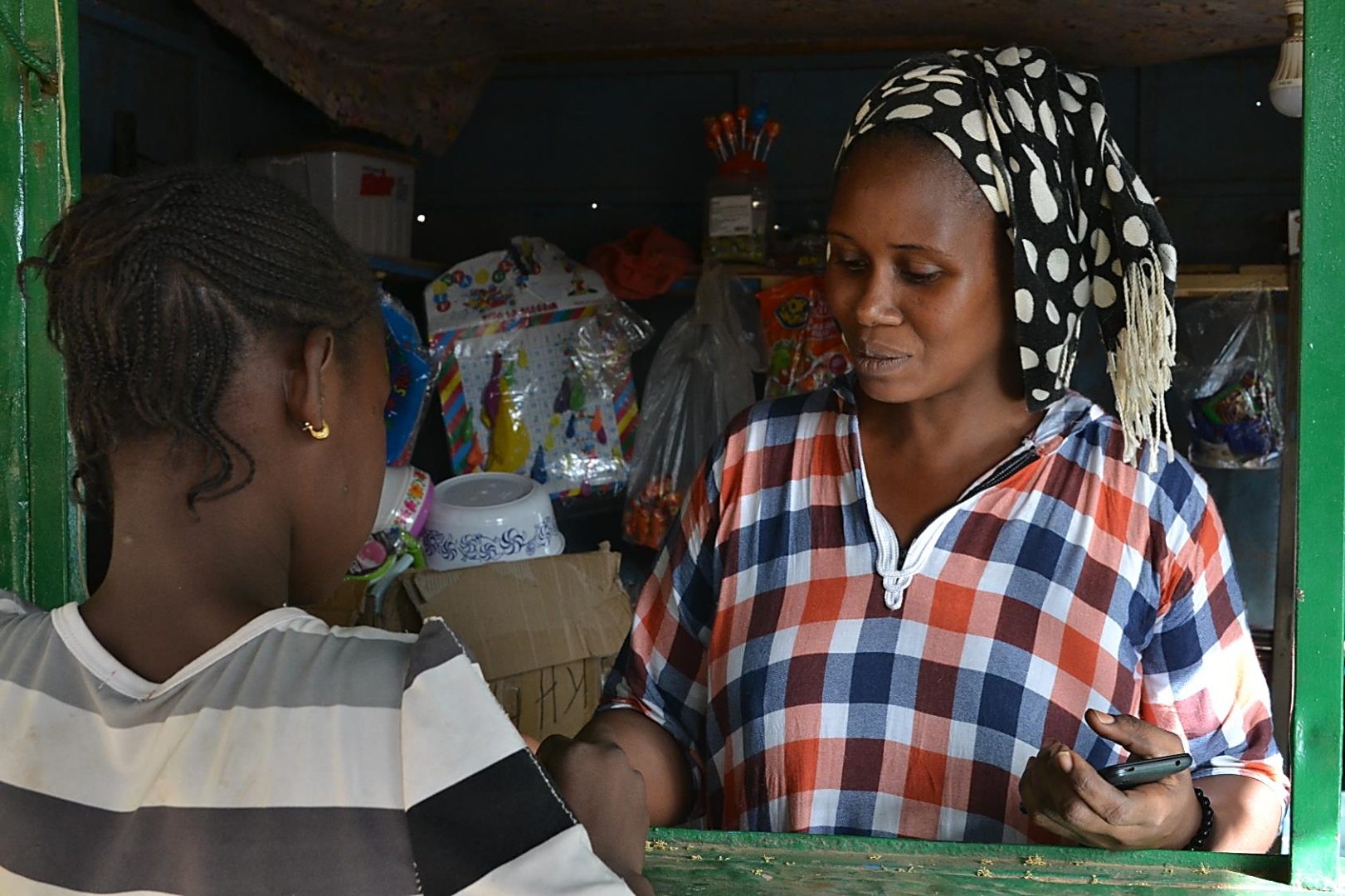Is the agent aggregator model the solution for rural areas?
 Khady Sow, Nioro, Senegal - © UNCDF 2019
Khady Sow, Nioro, Senegal - © UNCDF 2019
The deployment of the agent network in rural areas initiated by the Fintech InTouch with UNCDF’s support ended in June 2019. With the technical support of PHB, the project was able to increase the penetration of financial services in 10 underserved departments in Senegal.
Despite difficulties in the implementation, by March 2019, 373 agents were deployed—that is 101% of the project’s objective. InTouch agents carry out 9 transactions a day and of US$73 in value on average. Youth mobilization has been particularly successful: more than 50% of the active agents are less than 35 years old. Becoming an InTouch agent is an interesting opportunity for youth living in villages where unemployment is rampant.
Who are the agents in rural Senegal?
Birane is 22 years old and lives in Keur Gaye, 9KM away from Nioro. He didn’t have a degree and was unemployed, so he helped his father to work his land—a seasonal activity which didn’t really give him much revenue. As a roving InTouch agent, he now earns about US$42) a month. This revenue allows him to project himself into the future. After 13 months, he was able to buy a piece of land.
Beyond their financial gains, agents also get non-financial benefits from their business activity, especially with the status that they acquire within the community. Being an agent is first and foremost to help and support people by facilitating access to digital financial services (DFS).
Mame Ngor was the first agent to offer DFS in his village Gagué Shérif. This business activity has brought in a higher flux of customers in his shop:
“My business has been doing a lot better since I have added this activity. Sometimes I close at 10PM because of the high number of customers. People often call me to perform urgent cash deposits or withdrawals outside my opening hours.”
For Khady, the business activity isn’t as profitable as it is for Mame Ngor. She doesn’t own a shop and DFS is her sole activity. Even though her commissions aren’t that high, she enjoys the fact that she has a business activity that she can combine with the management of her household:
“I am a roving agent, so I carry out this activity from my home. I prepare the meals and do my household chores while I provide customers services.”
Recruiting women within this project was difficult. The objective to hire 30% of women agents was not met. In rural areas, there are some traditional barriers such as husband’s approval. Men still hold such decision-making powers over women. This means that only 27 women—that is 10% of the total number of agents—were recruited. Having access to the capital is a challenge for all rural agents and more so for women agents because of their dependence on their husbands or their families.
InTouch’s project has brought some real progress in the villages. Awareness of DFS has grown significantly, and their use is more systematic. Furthermore, DFS have improved the lives of villagers: less commuting, less fees to pay and more privacy thanks to money being on their phone.
What would make the model sustainable?
InTouch was able to integrate many services on its platform which include the majority of mobile money services and money transfers that are available in Senegal thanks to partnerships. This wider offer of services makes it more attractive and as a result increases the agent’s customer base. However, the current model does not bring in enough revenues to agents who have made it their main business activity. There are still some challenges to overcome in order to make this a sustainable model in the long run. In addition to the challenges that were identified during the implementation stage, it is necessary to increase the visibility of the InTouch Points, as this was a major concern that was raised by the agents.
What next?
Trade is gaining ground in rural areas; agriculture only offers seasonal revenues and those aren’t always sufficient. Weekly markets are filled with sellers who are sourcing materials from big cities such as Kaolack, Dakar or Touba. InTouch agents can be liaisons between providers, traders and customers, by facilitating merchant payments.
This could also be the case in the agricultural sector as most transactions are conducted exclusively in cash and would benefit from becoming digital.
The practice of savings group “tontine” is widely used as a means to have savings in villages: everyone contributes to a common pool in order to make a purchase for the family or the community. With the increase of network agents in the villages, residents now use their mobile money accounts to save money. The development of digital savings solutions would help build a financial history for clients which could then be used to provide other financial services.
The results of this pilot project show the impact of the agent aggregator model in terms of access to DFS in rural areas. By building on these lessons learned in DFS, digital finance and services will certainly continue to impact financial inclusion in rural Senegal and the SDGs in the coming years.